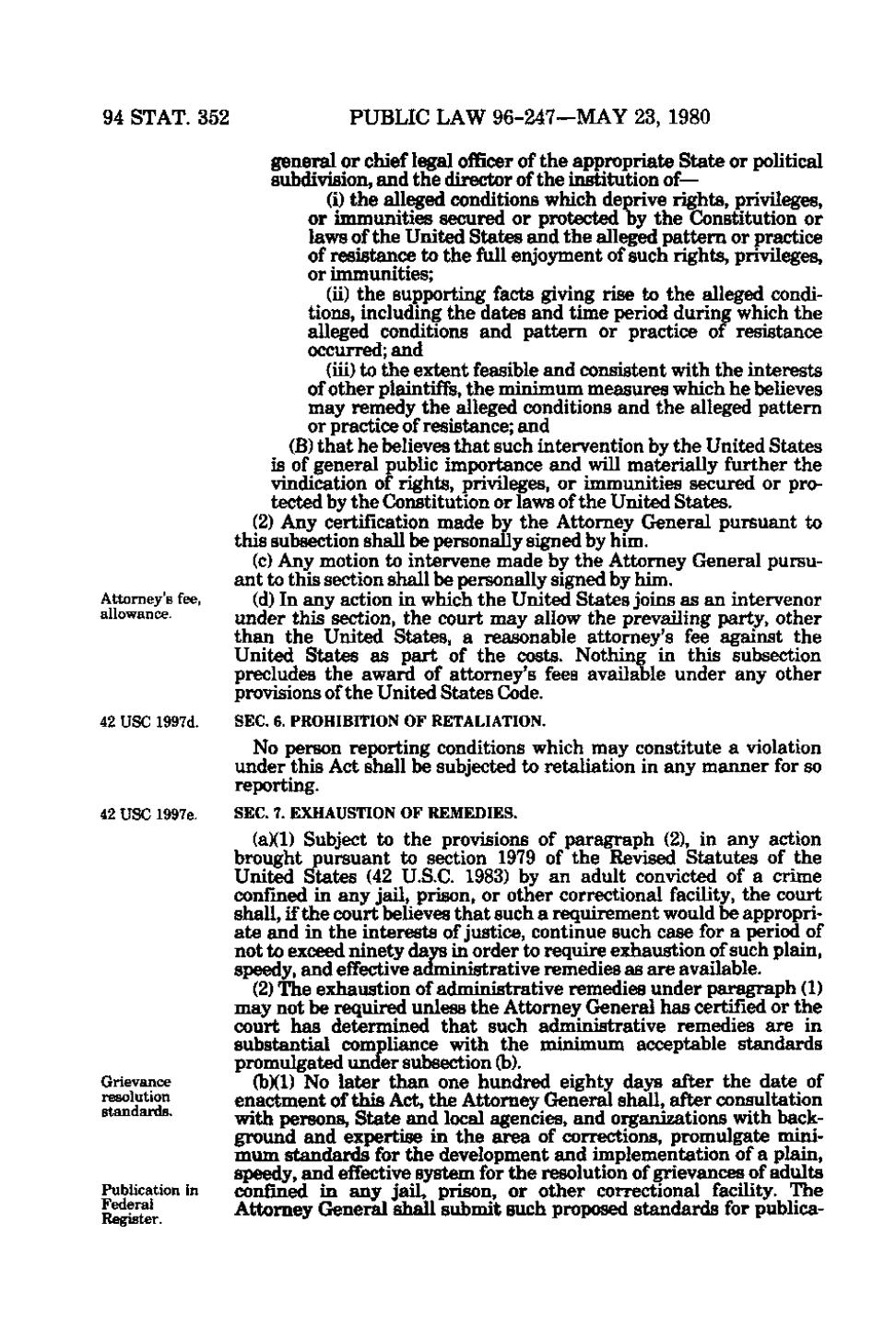94 STAT. 352
Attorney's fee, allowance.
42 USC 1997d.
PUBLIC LAW 96-247—MAY 23, 1980 general or chief legal officer of the appropriate State or political subdivision, and the director of the institution of— (i) the alleged conditions which deprive rights, privileges, or immunities secured or protected by the Constitution or laws of the United States and the alleged pattern or practice of resistance to the full enjo3mient of such rights, privileges, or immunities; (ii) the supporting facts giving rise to the alleged conditions, including the dates and time period during which the alleged conditions and pattern or practice of resistance occurred; and (iii) to the extent feasible and consistent with the interests of other plaintiffs, the minimum measures which he believes may remedy the alleged conditions and the alleged pattern or practice of resistance; and (B) that he believes that such intervention by the United States is of general public importance and will materially further the vindication of rights, privileges, or immunities secured or protected by the Constitution or laws of the United States. (2) Any certification made by the Attorney General pursuant to this subsection shall be personally signed by him. (c) Any motion to intervene made by the Attorney General pursuant to this section shall be personally signed by him. (d) In any action in which the United States joins as an intervener under this section, the court may allow the prevailing party, other than the United States, a reasonable attorney's fee against the United States as part of the costs. Nothing in this subsection precludes the award of attorney's fees available under any other provisions of the United States Code. SEC. 6. PROHIBITION OF RETALIATION.
No person reporting conditions which may constitute a violation under this Act shall be subjected to retaliation in any manner for so reporting. 42 USC 1997e.
Grievance resolution standards.
Publication in Federal Register.
SEC. 7. EXHAUSTION OF REMEDIES.
(a)(1) Subject to the provisions of paragraph (2), in any action brought pursuant to section 1979 of the Revised Statutes of the United States (42 U.S.C. 1983) by an adult convicted of a crime confined in any jail, prison, or other correctional facility, the court shall, if the court believes that such a requirement would be appropriate and in the interests of justice, continue such case for a period of not to exceed ninety days in order to require exhaustion of such plain, speedy, and effective administrative remedies as are available. (2) The exhaustion of administrative remedies under paragraph (1) may not be required unless the Attorney General has certified or the court has determined that such administrative remedies are in substantial compliance with the minimum acceptable standards promulgated under subsection (b). (b)(1) No later than one hundred eighty days after the date of enactment of this Act, the Attorney General shall, after consultation with persons. State and local agencies, and organizations with background and expertise in the area of corrections, promulgate minimum standards for the development and implementation of a plain, speedy, and effective system for the resolution of grievances of adults confined in any jail, prison, or other correctional facility. The Attorney General shall submit such proposed standards for publica-
�
